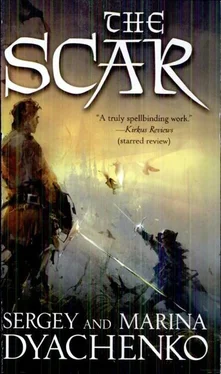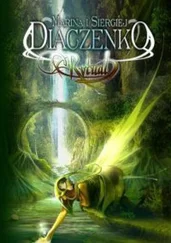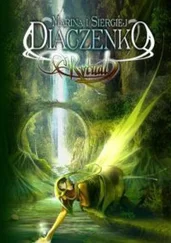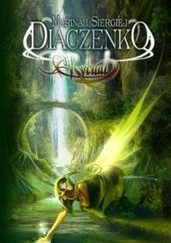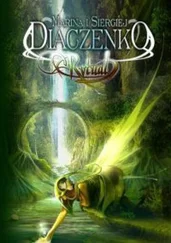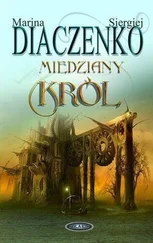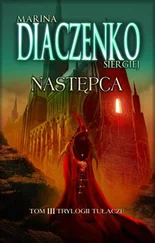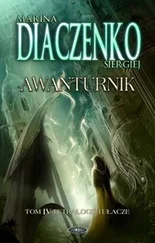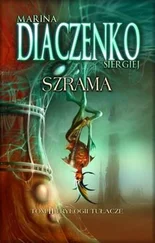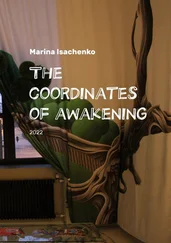The magistrate’s hoarse voice seemed deafening to Egert, like the bellowing of a herd being led to slaughter.
“That’s not true,” he whispered, for at that moment even the fear in his soul was stunned. “That’s not true. The acolytes of Lash dug up the den of the Plague: it is they who summoned it, and the dean stopped it at the cost of his own life. I saw it, I…”
Fear recovered from its shock and called out. It swept over his mouth and snapped it shut; it poured streams of clammy sweat over his body and flung him into a merciless, fevered trembling.
“Slander against Lash,” observed the magistrate, “is absolutely forbidden, and the first offense is punishable by a public whipping.”
Silence fell and for several long minutes Egert’s inflamed imagination presented him with a picture of the whip, the crowd, and the executioner. Stinging welts seemed to be already burning on his back.
The magistrate sighed. Something caught in his throat then burst forth, as if tearing through a pustule. “However, I understand your situation. You are not completely the master of yourself and are not responsible for your own words; therefore, I will pretend that I did not hear them. It is likely that the trial will take place as soon as the interrogation of the prisoner is finished. As for you, Soll, I do not have any basis for detaining you, but the prosecutor wants to ask you a few questions.”
The magistrate stretched out his hand toward a small bell on the table. Without waiting for the ring, a squat guard appeared from behind a curtain that until this moment had been invisible to Egert. Rubbing at his sore thighs, Egert stepped beyond the concealed portiere.
Wood lice skittered along the damp walls. In the light of torches braced to the walls, the shadow of Egert’s escort thrashed about like an enormous moth. Listening to the sound of his own footsteps, Egert agonized, thinking of Toria.
They interrogated her and will interrogate her again. About what? She … Heaven, would they really dare torture a woman!
Then in the echoing silence of the corridor a distant scream, muffled by stone walls, seemed to hover in the air around him. He could not restrain himself from groaning. The guard escorting him looked back in surprise.
A keyed turned in a concealed door. The guard forced Egert through the door, slightly nudging him in the back. The dark, narrow room looked exactly like a cell, and Egert was sure that he had been brought right into the prison. But then the torch being brought in by the guard illuminated a tall armchair in the corner and a man sitting in that chair. Without surprise and even without an increase in his fear, Egert recognized Fagirra.
Placing the torch in a bracket, the guard bowed low and left. The tramp of his boots receded down the corridor.
Fagirra did not move. His hood rested on his shoulders, and it seemed to Egert that decades had passed since they last met: so much horror had happened since that time. Fagirra had aged suddenly. He no longer possessed his previous youthful appearance. Egert was struck by the thought that the true age of Fagirra was revealed to him only now.
Several minutes passed before the robed man sighed noisily and stood up, ceding the only chair in the room to Egert. “Take a seat, Egert. I can see that you are hardly able to keep on your feet.”
“I’ll stand,” replied Egert dully.
Fagirra shook his head seriously. “No, Egert, you will not stand. You yourself understand this. Your pride and your cowardice will tear you asunder, but something tells me that your cowardice will prove stronger. You can, of course, lament this fact without end, torment and castigate yourself, or you can simply sit down and listen to what a man who sympathizes with you has to say. Because I do sympathize with you, Egert, and I have from the very beginning.”
“You are the prosecutor,” Egert declared at the dark corner; he declared, not asking, but simply expressing his certainty. “The prosecutor in the trial against Toria. I should have expected it.”
“Yes,” Fagirra confirmed dolefully. “I am the prosecutor, and you will be the witness.”
Egert leaned against the wall, feeling how each of his muscles came into contact with the cold stronghold; then he bent his knees and sat, pressing his back against the wall. “Fagirra,” he said wearily, “did you see the Plague? I don’t know what happened there, behind the walls of the Tower, but the city … If only you could have seen…”
Fagirra paced around the narrow room. Egert watched as his well-made boots, hidden down to their ankles by his robe, stepped across the floor.
“Egert.” Fagirra stopped. “Did anyone you know die?”
“A friend of mine died,” responded Egert desolately. “And my teacher perished.”
“Yes.” Fagirra resumed his pacing. “I understand. As for me, Egert, six members of my family died: my mother, my brother, my sisters, and my nieces. They lived in the outskirts and all died in the course of one day.”
Egert was silent. He understood immediately that Fagirra was not lying; the robed man’s voice had shifted in an unnatural and strange way.
“I didn’t know that acolytes of Lash had families,” he said hoarsely.
“According to you,” Fagirra laughed bitterly, “the acolytes of Lash grow off trees, like pears?”
For some time the only sounds in the room were the crackling of the torch and the soft tread of Fagirra’s boots along the stone floor.
“I apologize,” Egert said finally.
Fagirra smirked without stopping his pacing. “You weren’t there in the Tower when all the entrances were sealed, when the Plague began, and there was nowhere to put the corpses.”
“You yourselves…,” Egert said in a whisper. “You yourselves willed it.”
Fagirra broke into a rough grin. “It is not for you to judge our designs.”
“But it was madness!”
“Yes, because the Magister is a madman!” Fagirra emitted a dry, sharp laugh. “He is a madman, but the Order, well, the Order is not composed of only the Magister. The Magister’s time is passing, but the Order remains, the Secret remains.” Here Fagirra’s voice slid into overt sarcasm. “And the Power that is bound to it also remains.” He became serious again. “You can’t understand, Egert. You are not a lover of power.”
“It is you who is a lover of power,” clarified Egert under his breath.
Fagirra nodded. “Yes. Do you know who will be the next Magister?”
“I know,” Egert replied dully, and it was quiet again for some time. Then somewhere in the dungeons below, iron rattled, and it seemed to Egert that once again he heard vague, distant screams. He felt chilled to the bone, but quiet reigned throughout the courthouse as before. It was possible that the terrible sounds were born from Egert’s afflicted imagination.
“Listen to me,” he said in despair. “Power is all well and good, but you know the truth no less than I do. You know where the Plague came from, and who defeated it. We owe our lives to Dean Luayan: you and I, the magistrate, the guards, the mayor, the townsfolk. The man gave us back our lives. Why do you wish to punish his innocent daughter?”
“Luayan was even stronger than I thought.” Fagirra stopped, squinting in the light of the torch. “He truly was an archmage.”
These words, spoken so simply and without reservation, compelled Egert to lean forward. “So you admit it?”
Fagirra shrugged his shoulders. “Only a madman, like the Magister, would wish to deny it.”
Egert clasped his sweaty palms together in desperation. “For Heaven’s sake, tell me what you want to accuse Toria of?”
Fagirra looked into Egert’s beseeching face, sighed, and sat down next to him on the stone floor, leaning his back against the wall. Somewhere in the distance, in the bowels of the building, an iron door clanged.
Читать дальше
